
Bethany Brookshire was a longtime staff writer at Science News Explores and is the author of the book Pests: How Humans Create Animal Villains. She has a B.S. in biology and a B.A. in philosophy from The College of William and Mary, and a Ph.D. in physiology and pharmacology from Wake Forest University School of Medicine. She was a 2019-2020 Knight Science Journalism Fellow at MIT, the winner of the Society for Neuroscience Next Generation Award and the Three Quarks Daily Science Writing Award, among others.

All Stories by Bethany Brookshire
-
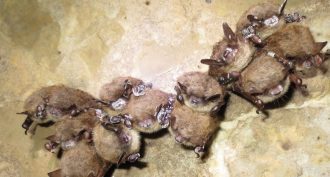 Animals
AnimalsPicture This: Winter brings white noses
White-nose syndrome, caused by a fungus, has killed millions of bats in the eastern United States. Now, scientists show that the disease comes and goes, by season. The finding could help scientists more effectively target any treatments.
-
 Environment
EnvironmentNature documentary puts people in the picture
Many nature documentaries cut people out of the frame. A new series aims to show how we are entwined with our environments.
-
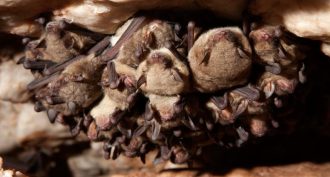 Animals
AnimalsScientists say: Hibernaculum
This week’s word is hibernaculum, the word scientists use to describe the place where an animal goes to hibernate.
-

Cookie Science 11: That’s the way the cookie crumbles
I made cookies and had people taste them. Now it’s time to look at the results of my data.
-

Give the gift of science without breaking the bank
Many gifts for science lovers can get pricey. But there are lots of ways to share a love of science without having to spend too much.
-

Book review: The Universe Verse
Reading about science can get a bit boring. A new comic book will stop you from snoring. The book combines comics with poetry and rhyme, to help you learn science and have a good time.
-
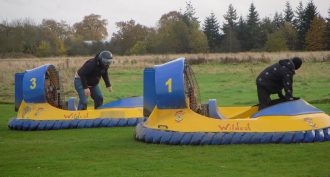 Tech
TechMake your own mini hovercraft
Hovercraft aren’t just the cars of the future. You can make your own with just a few household items.
-

Dig dirt? It’s World Soil Day
The food we eat, the water we drink and the air we breathe — all are influenced by the ground beneath our feet. On World Soil Day, take a moment to learn about the importance of good old dirt.
-

Cookie Science 10: Finding the cookie difference
To determine whether people ranked my cookies differently, I need to compare how much the groups of rankings differed. I can do this with a statistical test.
-

Apply for summer research experience at NIH
If you like science and think you want to be a scientist, it’s never too early to start doing your own research. The National Institutes of Health has a competitive program for summer research for high school students.
-
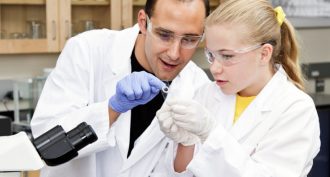 Science & Society
Science & SocietyA teacher’s guide to mentoring in STEM
Many people in STEM careers credit mentors for their success. But a good mentor is more than just a teacher.
-
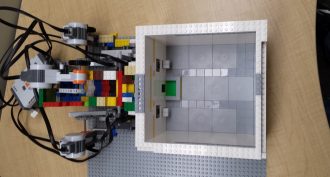
A Lego box to study drug addiction
Most students learn that drugs are bad for you, but many try them anyway. A high school student has tried to find a new way to teach teens about addiction. His tool is made from Legos.